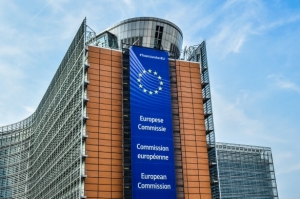


(Posted on 28/01/22)
The European Sea Ports Organisation (ESPO) has welcomed the proposal to include shipping in an Emission Trading System (ETS). Putting a price tag on shipping emissions through the EU ETS should deliver clear climate gains and push the sector to choose greener solutions. However, the effectiveness of this policy will be undermined if evasion of a regional ETS is possible through rerouting of business.
Given the international character of shipping, a global market-based measure would be, by far, the most suitable option. Such a global measure would be more difficult to evade, and would entail lower risks for negative competitiveness effects compared to a regional measure. ESPO therefore asks the European Union to increase the pressure on the International Maritime Organization (IMO) to make progress on the development of such a global market-based measure. An alignment between the EU ETS and a market-based measure on the international level should then follow.
The Commission proposal for a European maritime ETS covers the emissions from intra-EU voyages and emissions at berth, alongside half of the emissions from extra-EU voyages (both incoming and outgoing voyages). Due to the limited scope of the current ETS proposal, ships can find ways to avoid falling in the scope of the EU ETS, by rerouting and calling, where possible, at non-EU neighbouring ports in order to minimise costs.
Evasive port calls at neighbouring non-EU ports could seriously jeopardise the effectiveness of the maritime ETS, as it would not reduce total shipping emissions. It could even increase overall emissions, in particular when evasion leads to longer voyages.
At the same time, evasive calls would divert traffic and business from European ports and seriously impact the business of certain important European ports which are already in fierce competition with other ports in countries neighbouring the EU. This risk exists for ports in the EU located in the North Sea, the Baltic Sea, the Mediterranean Sea and the Black Sea. Many of the affected ports are important nodes in the EU logistic chains, and play a crucial role in their regional economies.
For Europe’s ports the monitoring clause in the Commission proposal is too little too late. Instead of measuring the damage once it is already done, ESPO asks first for a full impact assessment of the implications of the current geographical scope of the proposal on carbon and business leakage, along with the accumulated impact of all Fit for 55-proposals. ESPO is happy to share evidence of the impact with EU policymakers in order to find an appropriate solution.
“European ports are supportive of an emission trading scheme and see pricing as an excellent instrument to boost greener behaviour. However, the Commission proposal contains too many loopholes that risk to seriously harm Europe’s ports business without any gains in emission reduction from maritime, on the contrary. Ships can move, ports cannot. The polluter will not pay, but move out where possible, without any emission gains. We cannot just wait and monitor the damage that would result from the current proposal. Decisive action must be taken by the Commission, Parliament and Council to prevent the risk of evasive port calls and delocalisation of port activities outside the EU and the negative impact on Europe’s connectivity,” says Isabelle Ryckbost, ESPO Secretary General.
A possible solution – if legally possible – could be to expand the scope of the proposal by considering the evasive call to/from a non-EU neighbouring port as a call to an EU port in the counting of the ETS emissions. In addition, the proposed monitoring mechanism should be strengthened to clearly define evasive trends, and foresee next steps if such trends are identified.
With this year’s Rail Conference “Rail Freight Transport and Seaports”, a joint initiative... Read more
Asian Bulk Logistics (ABL Group) and ICG have jointly announced the successful completion of ABL&rsquo... Read more
Abu Dhabi based AD Ports Group, a leading global enabler of integrated trade, industry and logistics... Read more
The Executive Board of Hamburger Hafen und Logistik AG (HHLA) has appointed Patrick Krawutschke as Managing... Read more
Abu Dhabi based AD Ports Group, a global enabler of integrated trade, transport, industry, and logistics... Read more
This year marks a significant milestone in maritime innovation as Port Hedland, Australia, celebrates... Read more
Associated British Ports (ABP), the UK’s leading port operator, has announced the latest tranche... Read more
During the Investment, Labour, and Trade Promotion Programme in Japan (November 16–22, 2025),... Read more
AD Ports Group subsidiary Khalifa Economic Zones Abu Dhabi - KEZAD Group, the largest operator of integrated... Read more
Abu Dhabi based AD Ports Group, a global enabler of integrated trade, transport, industry, and logistics... Read more